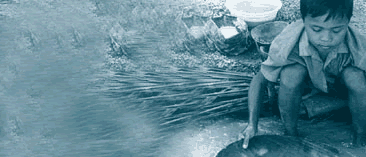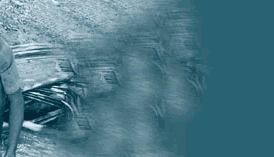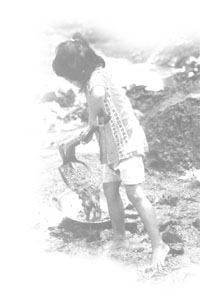 |
 |
||||||
 |
|||||||
| english | bahasa indonesia | home | conventions | laws | countries ratified | ||
|
|
ACT OF
REPUBLIC OF INDONESIA ON RATIFICATION ILO CONVENTION NO. 182 WITH THE BLESSING OF GOD THE PRESIDENT OF REPUBLIC OF INDONESIA Considering : That Indonesian as a nation and as part of the international community honours, respects and upholds the principles and the objectives of the Character of the United Nations, and the 1948 Universal Declaration of Human Rights, the 1944 Declaration of Philadelphia, the Constitution of the International Labour Organisation (ILO) and the 1989 Children's Right Convention; That the Eighty-Seventh Session of International Labour Conference on June 17, 1999 adopted the ILO Convention No. 182 concerning the prohibition and immediate action for the elimination of the worst forms of child labour; at the Convention accords with the will of Indonesian as a national to continuously uphold and advance the implementation of human rights in the life society, nation and state; that based on the considerations mentioned in paragraphs 1., b., c., and d., it is deemed necessary to ratify the ILO Convention No. 182 concerning the Prohibition and Immediate Action for the Elimination of the Worst Forms of Child Labour by the issuance of law; In view of : 1. Article 5 paragraph (1); Article 11, Article 20; Article 27, Article 31; and Article 34 of the 1945 Constitution; 2. The Decree to the Peoples Consultative Assembly Number XVII/MPR/1998 concerning Human Rights; WITH THE APPROVAL OF THE HOUSE OF RESOLVES To enact : ACT ON THE RATIFICATION OF THE ILO CONVENTION NO. 138 CONCERNING THE PROHIBITION AND IMMEDIATE ACTION FOR THE ELIMINATION OF THE WORST FORMS OF CHILD LABOUR Article I Ratifies the ILO Convention No. 182 concerning the Prohibition and Immediate Action for the Elimination of the Worst Forms of Child Labour whose authentic English text and its Indonesian translation are appended to this ratification as an inseperable part of this Act. Article 2 This Act shall come into force on the day of its promulgation. In order that everyone take cognisance of this, the promulgation of this Act is here with ordered by publication in the State Gazette of the Republic of Indonesia. Enacted in Jakarta on 08 March 2000 ELUCIDATION OF I. GENERAL Children as human beings created by God are endowed with fundamental rights since their birth. No other human beings or parties can deprive these rights. Children's rights have been universally acknowledged as stated in the United Nations Charter, the 1948 Universal Declaration of Human Rights, the 1944 International Labour Organisation (ILO) Declaration of Philadelphia and the 1959 United Nations Declaration of Children's Rights. Such acknowledgement is also stated in the 1966 United Nations Convention on Economic, Social and Cultural Right and in the 1989 United Nations Convention on Children's Rights. Hence, every country in the world is morally demanded that they honour, uphold and protect children's rights. A particular form of children's rights is to get a protection guarantee in accordance with the principles of religion and humanity. The protection guarantee of children's rights is in harmony with the Principles of the Pancasila State Ideology and the objectives of the State as stated in the Preamble of the 1945 Constitution. As a member of the United Nations and the International Labour Organisation (ILO), Indonesia respects, upholds and makes efforts to implement the decisions made by these International Organisations. The 87th Session of International Labour Conference in Geneva on June 17, 1999 adopted ILO Convention No. 182 concerning the Prohibition and Immediate Action for the Elimination of the Worst Forms of Child Labour , which is one of the Conventions for protecting children's rights. This Convention requires each Member country of the ILO that ratifies it to eliminate the worst forms of child labour. In accordance with what is required in Article 2 paragraph (1) of the Convention, the term "child" shall apply to all persons under the age of 18. II . UNDERLYING IDEAS OF THE ADOPTION OF CONVENTION 1. ILO Convention No. 138 of 1973 concerning A
minimum age for admission to work is a fundamental instrument of
child labour;. 2. Beside the ILO Convention No. 138 of 1973, it is deemed necessary to ratify the new instrument of labour standard to prohibit and to eliminate the worst forms of child labour which accompanies the ILO Convention No. 138 of 1973; 3. The Convention on Children's Right was adopted
by the United Nations' General Assembly on November 20, 1989. 4. Some of the worst forms of child labour are also covered by other international instruments in particular the ILO Convention No. 29 of 1930 concerning Forced Labour, and the United Nations Supplementary Convention on the Abolition of slavery, the slave trade, and Institutions and Practices siminar to Slavery, 1956. III. REASONS WHY INDONESIA RATIFIES THE CONVENTION 1. The Pancasila (which literally means the Five Principles) is the philosophy of the nation and the way through which Indonesians as a nation see life. The 1945 Constitution, as the source and basis a of national laws, upholds human dignity and values as implied in the Five Principles of Pancasila, particularly, in the principle of Ajust and civilised humanity@. Therefore, the Indonesian Nation pledges to protect children's fundamental rights in accordance with the provisions of this Convention. 2. In order to practice the Principles of the Pancasila and to implement the 1945 Constitution, Indonesia has established various laws that govern the protection of children. 3. The People's Consultative Assembly of the Republic of Indonesia by the Issuance of Decree No. XVII/MPR/1998 concerning Human Rights has appointed the President and the House of Representatives to ratify various United Nations instrument related to human rights. Indonesia has ratified the United Nations Convention on Children's Rights on September 30, 1990. In addition, Indonesia has ratified 7 (seven) ILO Conventions including Convention No. 138 concerning the Minimum Age for Admission to Employment with Acts no. 20 of 1999. Those Conventions cover the workers' fundamental rights. 4. While practising the Principles of the Pancasila and implementing legislative rules and regulations, however, violations against the protection of children are still felt. Therefore, the ratification of the Convention is aimed at eradicating any forms of child labour practices. The ratification is also aimed at improving protection and effective legal enforcement to ensure that children are safe from all forms of slavery or practices dealing with children prostitution, production of pornography, drugs and psychotropics traffickings. This protection also covers protection against works of which in nature is likely jeopardise the health, safety, and moral of the children. 5. By ratifying this Convention, Indonesia demonstrates its seriousness in furthering the protection of children's rights as mentioned in the above paragraph 6. This will enhance Indonesia's image in international forums and strengthen the confidence of the international community towards Indonesia. IV. THE FUNDAMENTALS OF THE CONVENTION 1. The ILO member countries, which ratify this Convention, shall take immediate and effective measures to secure the prohibition and elimination of the worst forms of child labour as a matter of urgency. 2. The term "child" means all persons under the age of 18. 3. The term "worst forms of child labour"
comprises : b). The use, procurement or offering of a child
for prostitution, production of pornography or pornographic performances. c). The use, procurement or offering of a child
for illicit activities, in particular for the production and trafficking
of drugs. d). Work which, by its nature of the circumstances in which is carried out, is likely to jeopardise the health, safety or morals of children. 4. The ILO member countries which ratify this Convention shall design and implement programmes of action to eliminate as a priority the worst forms of child labour,. 5. The ILO member countries which ratify this Convention shall take necessary measures to ensure the effective implementation and enforcement of the provisions giving effect to this Convention including the provision and application of penal sanctions or, as appropriate, other sanction. 6. The ILO member countries that ratify this Convention are obliged to report its implementation. V. ARTICLE BY ARTICLE Article 1 Should differences in interpreting the Indonesian translation of this Convention arise, the authentic text of the English version of this Convention applies. Article 2 SUPPLEMENT TO THE STATE GAZETTE OF The International Labour organisation Convention concerning the Prohibition and
|
 |
||||
